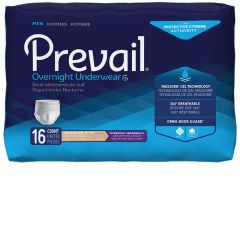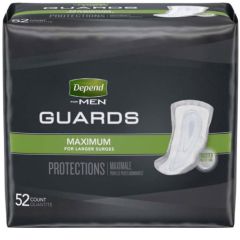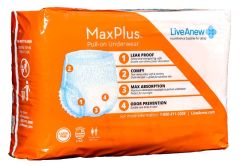Incontinence After Prostate Surgery
Approximately 350,000 men are diagnosed on an annual basis with prostate cancer. Almost half of those receiving the diagnosis will undergo radical prostatectomy and up to 85 percent will report light to moderate post-surgery bladder control loss. The level of incontinence that men will experience after surgery can be either temporary or permanent, depending on the outcome of each individual. As daunting as those numbers may seem to some, given the rate of advancing medical technology and pharmaceuticals, there is more hope now than ever for a greater success rate of restoring full continence.
Although there are different therapies available for an inflamed prostate or for prostate cancer, surgical therapy is becoming more widely used because it offers better results these days. Collagen can be injected around the bladder’s neck in an effort to help prevent leakage. There is also surgery involving the insertion of a mesh-type material that will help to compress your urethra and helps to lessen the amount of urine leakage. Urethral slings are another option as well as artificial urinary sphincters that can be inflated to hold urine in and relaxed to allow it to flow out.
After your prostate surgery, you will most likely need to manage some level of incontinence. You will need to decide whether you need a pad for men or pull-on underwear that meets the level of absorbency you will need. The most common cause for post-surgery urine leakage is stress incontinence. This is where you may lose a few drops or more due to lifting heavy objects, sneezing, laughing hard, or coughing.
There are so many different types of discreet incontinence products for men today that look and feel like real underwear that the transition to wearing these products will be a more pleasant experience than you think. They no longer look like the adult diapers that may come to mind, but instead, they are offered in both pullup diapers, briefs and pads that look and feel like regular underwear.
A few small lifestyle adjustments and habit changes will help to get you back to normal. Kegel exercises for men, biofeedback that records electrical signals of urinary muscles as they contract can help you to control bladder function, limiting beverages that contain caffeine or alcohol, scheduling bathroom visits every two hours to avoid leaks, and the use of medications that help to lessen urinary incontinence can all be of substantial help.
Having prostate surgery will certainly not be the end of enjoying your life, as you know it. By wearing the proper protective undergarments and making a few lifestyle changes, you can be well on your way to achieving complete urinary continence again.


 FREE SHIPPING ON ALL ORDERS OVER $70
FREE SHIPPING ON ALL ORDERS OVER $70

